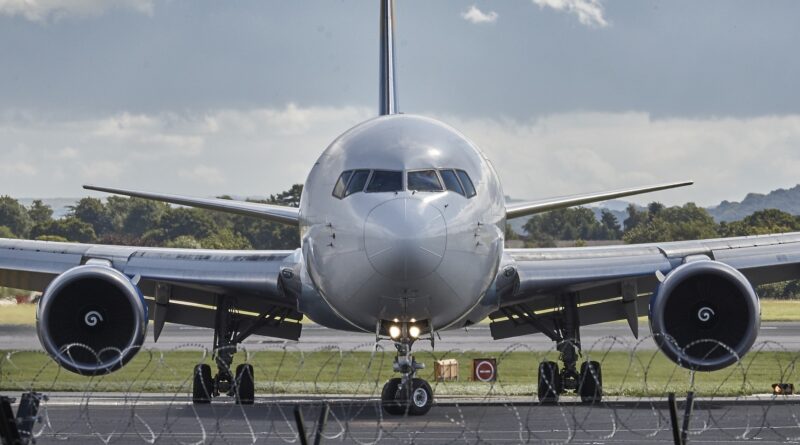Air passenger rights: a battle between refunds and vouchers
EU passengers have the right to receive a refund from airlines if their flights are cancelled because of coronavirus, the European Commission has repeated on Monday. Vouchers for future bookings are an option only if passengers accept them, a Commission spokesperson said.
The clarification was made as airlines are pressing to soften EU consumer protections and often offer vouchers instead of refunds for cancelled flights. European consumer group BEUC said members organisations across Europe are being “inundated” with “complaints about their travel rights being undermined”.
BEUC also warned that some EU countries are “introducing measures to force consumers to accept vouchers for their cancelled travel, instead of allowing people to claim a direct reimbursement.”
“Passenger rights are protected by law in the EU. Airlines have to offer passengers a choice between a refund or a change of route. As a change of route is not always an option under current circumstances, passengers should be reimbursed,” EU Commission spokesman Stefan de Keersmaecker said at a press conference on Monday.
The EU is the only area in the world where passengers can claim a full set of rights, whether they travel by air, rail, ship or coach. If a service is cancelled, carriers have to refund tickets or re-route passengers. They also have a duty of care (i.e. providing meals, accommodation and transport to the place of accommodation if necessary).
Airlines must offer food and drinks, accommodation and extra compensation in case of delays of more than two hours, and depending on the flight distance. These rules apply to all flights operated within the EU (the UK is included until the end of the Brexit transition period), Iceland, Norway and Switzerland. They also apply to flights departing from the EU and associated countries, or arriving from outside the EU and being operated by EU airlines.
Passengers would usually have the right to compensation if their flight is cancelled less than two weeks before the departure date, unless there are “extraordinary circumstances”. On the other hand, if it’s passengers cancelling trips, the refund depends on the tickets’ terms and conditions.
“Extraordinary circumstances”
Given the travel restrictions recently imposed by European governments, including flight bans, due to the Covid-19 pandemic, on March 18th the EU Commission provided guidance on how to apply such rights.
The Commission specified that if a journey is cancelled, passengers can choose between the reimbursement of the ticket or a re-routing to the final destination. But current circumstances are considered “extraordinary”, so extra compensation is not due if flights are cancelled less than two weeks from the departure date. If passengers decide to cancel their journeys, the reimbursement depends on the type of ticket and companies can offer vouchers to be used at a later stage.
Commissioner for Transport Adina Vălean said: “We continue to monitor the rapidly evolving situation, and, if need be, further steps will be taken.”
But the European Regions Airline Association (ERA), which represents the interests of the aviation sector in Brussels, expressed “profound disappointment”. ERA said the guidelines intend to “reassure passengers that their rights are protected” but do not include “clear measures to support airlines deeply in need and provide flexibility on the limitation of obligations during this period of crisis.”
ERA and the International Air Transport Association (IATA) had requested the “flexibility” to offer rebooking or vouchers in place of refunds, and limits to the obligation of care and assistance in the event of cancellations due to the pandemic.
Airlines in deep trouble
With fleets grounded and passenger numbers collapsing, the aviation industry faces an unprecedented crisis, with some markets down 90% compared to last year, according to IATA.
Figures by Eurocontrol, the organisation managing air traffic in Europe, show that the worst hit European countries are Latvia (-91%), Italy (-87%), Slovakia (-78%), Poland (-78%), and Slovenia (-77%). Air travel is also down 58% in France, 57% in Spain, 50% in Germany, 48% in the Netherlands, and 37% in the UK.
IATA and other groups representing airlines have called for “urgent government support” as passenger demand this year is projected to be 46% below 2019 levels. “Without help now, airlines will be in no fit state to restart operations. Many airlines may not exist at all,” said Rafael Schvartzman, IATA’s Regional Vice President for Europe.
In March the European Commission adjusted state aid rules, making it easier for governments to bailout struggling companies.
But more than 250 organisations from 25 countries published an open letter asking governments not to “rush into unfair bailouts” and “use this moment to embed social and environmental conditions” in the aviation industry. Environmental groups ask in particular to transform the aviation transport sector in a “climate-friendly way” setting a kerosene tax (aviation currently benefits of fuel tax exemptions unlike other transport modes) and “fair progressive levies on frequent flying”.
The crisis comes as the EU was already under pressure to relax passenger protections. In February, Croatia, which holds the EU Presidency this semester, put forward a proposal to “significantly increase” the length of delays passengers should face before being entitled to compensation, Politico reported.
BEUC said “times of crisis should be when consumers are most protected, not an opportunity to get rid of consumer rights and leave people out of pocket”.
“We need solutions to ensure that both consumers and industry can cope with the crisis,” said BEUC Director General Monique Goyens. BEUC called for the establishment of travel funds that can cover insolvency and reimbursement claims of consumers.
A list of organisations across Europe with advice on consumer rights during the coronavirus pandemic is available on BEUC’s website.
Claudia Delpero © all rights reserved.
Europe Street News is an online magazine covering citizens’ rights in Europe. We are fully independent and we are committed to providing factual, accurate and reliable information. We believe citizens’ rights are at the core of democracy and information about these topics should be accessible to all. This is why our website and newsletter are available for free. Please consider making a contribution here so we can continue and expand our coverage.





